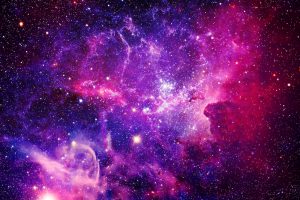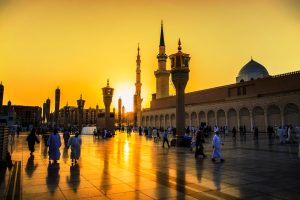
Professor Amtul Razzaq Carmichael, UK & Farrukh Tahir, Canada
In his epic book Aina Kamalat-e-Islam,The Promised Messiah and founder of the Ahmadiyya Muslim Community, Hazrat Mirza Ghulam Ahmad (as), explained the profound and poorly understood subject of belief in angels and the Holy Spirit. Referring to the verses 2-5 of chapter 86 of the Holy Qur’an, ‘…– That there is no soul but has a guardian over it,‘ the Promised Messiah (as) explained that every particle in this universe is appointed an angel to carry out its functions. It is as though the angel is the soul of that object or particle. Then the Promised Messiah (as) eloquently clarified four common misconceptions about angels and the Holy Spirit.
1. How can the Holy Spirit be a source of protection for everyone, when it is said to be bestowed only to the righteous?
The Promised Messiah (as) explained that the Holy Spirit is bestowed on people as a reflection of their level of spiritual progress. The Holy Spirit is the enlightenment that a person experiences as a consequence of the blending of the human efforts seeking the love of God with the Divine love. It is bestowed perfectly to the righteous. On the other hand, those of a lesser degree of spirituality will experience an imperfect manifestation of the Holy Spirit. As such, God reciprocates the love shown to Him by humankind while the Divine love bestowed to a person is proportionate to their efforts. A weak and feeble human effort attracts inadequate Divine love leading to a weak Holy Spirit. This concept can be understood by the example of sugar and water. When a certain amount of sugar is dissolved in water, it gives the water a sweet taste. Reducing the amount of sugar will not change the taste, if there is sugar present the taste will remain sweet. We cannot say that there is no sugar in that water. In the same way, expression of the Holy Spirit in a very limited capacity will not be obviously apparent, but it cannot be said that the Holy Spirit is absent. Over a certain threshold, the presence of the Holy Spirit starts to make a noticeable difference and it is likened to the sugar which is dissolved to make the water sweet.
2. Why do people commit sin if the Holy Spirit is our guardian?
The Promised Messiah (as) explained that there are two opposing forces that influence man – one of good and the other of evil. The Holy Spirit inclines man to do good and Iblis or Satan tempts man to do evil. These forces do not have the power to compel humans to behave a certain way; these forces merely give humans a true choice. How a person chooses to behave is left to the individual. Depending upon the choices a person makes, the consequences follow and make them worthy of reward or punishment.
3. Why does God require angels to oversee this universe, is He not Self-Sufficient?
The truth of that matter is that God is the Creator of the universe and has thus designed a system to govern the workings of that universe, and angels are designed to be part of that system. God has appointed angels to enact the function of everything in the physical and spiritual world, but only by His command. Angels do not have the capacity or power to do anything other than what they are commanded by God.
4. Does the Holy Qur’an mention that the Holy Prophet (sa) was abandoned by the Holy Spirit for some time?
There was indeed a brief delay in the divine manifestation after the initial revelation, however this was not the recession of the Holy Spirit. Like all angels, the Holy Spirit is designated with the task of always accompanying the prophets of God. It is impossible that the Holy Spirit deviated from its post, even for a moment. It is truly unfortunate that some Muslim clerics actually believe that the Holy Prophet (sa) – the heart and soul of truth – was left alone in darkness for a period of time. God save us from such misunderstandings.




Add Comment